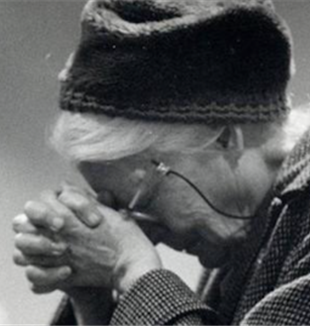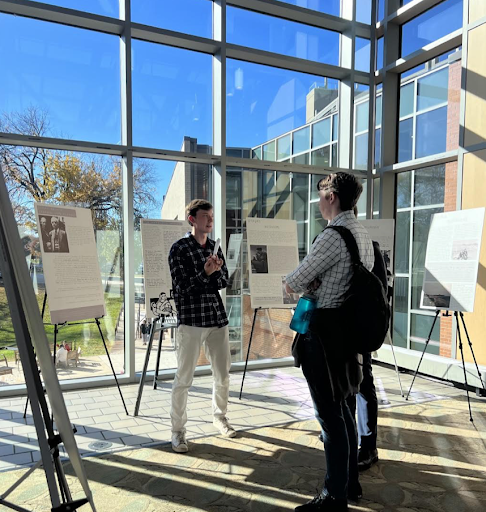
Meeting Christ in the City
The Washington DC CL University students organize and present an exhibit on Dorothy Day in order to rediscover the life of Christians living in the city.Finding ourselves as young adults living in the metropolis of Washington, D.C., the question of what it means to live in the city and how to see the good in this often ugly, noisy, lonely place rose amongst our CL University community. Such conversations led us to Dorothy Day – Servant of God, New Yorker journalist, and founder of the Catholic Worker, a movement now present in most all major American cities. Inspired by the work of some friends in CL who presented an exhibit on Dorothy Day five years ago at the New York Encounter, we decided to discover for ourselves who this woman was in light of our question: what is our task as Christians living in the city?
Through discussing this exhibit and reading her own writings, we found Dorothy Day to be an incredibly interesting and radical woman. Not raised in a Christian home, Day still had a deep sense of God from a young age. This innate religious sensibility seems to underlie her profound connection and desire for solidarity with her fellow man, specifically laborers of little means. Her love for poor people in the city — Italian neighbors, wandering homeless, workers on strike — made her love the city. A gifted writer, this radical sense of shared identity with the oppressed took the form of journalism in socialist circles in her younger adult years, although a communist friend described her as ‘too religious to be a communist.’ Day also had a keen sensitivity to beauty and felt especially at peace amidst Staten Island’s natural loveliness. Yet, this attunement also allowed her to see the surprising moments of radiance in her beloved city, such as dappled light across the side of a brick building.
In her later conversion to Catholicism, her inclination to help the poor would be transformed into the authentic radicality of the Gospel. Following her embrace of the Church, Dorothy Day’s life becomes a beautiful and striking synthesis of paradoxes. Surprised by the happiness of falling in love with a man, Day will sacrifice this natural love in preference for God. As he refuses to marry her, Day makes the painful decision to leave him in order to baptize her daughter and herself. Yet through this loss, Day finds her fulfillment in giving herself to God.
As she entered into a life of deep prayer, so too, her activism began to bear great fruit. After begging the Lord to show her how to use her gifts to serve the struggling workers and poor whom she loved, she is promptly given an answer: Peter Maurin at her door, the man who would provide the path for the founding of the Catholic Worker movement. Peter’s vision of making the works of mercy and beatitudes practical by simply practicing them took the shape of opening houses of hospitality, hosting round-table discussions, and bringing people back to the land in order to own responsibility for their work. This newfound way for the Catholic faith to lead into concrete action enabled Day to find a synthesis of prayer and activism.
During our time learning about Dorothy Day this semester, the conflict in Israel erupted. Day’s example of radically living out the faith helped us as a community to make a judgment on these events as members of the Church and to become aware of ways to respond to the crisis within our circumstances. 
Our discovery of Dorothy Day culminated in sharing the exhibit on her life with the wider community at the Catholic University of America and co-hosting a Theology on Tap event in which Kevin Ahern, leader of the guild for Dorothy Day’s cause for canonization, spoke about her life. I was struck by Dr. Ahern’s passion for Day as a saint for our times. His words also reinforced for me that she was a woman who did nothing more than respond with generous love to the people she encountered, witnessing to the presence of Christ in the poor, unexpected, and forgotten. The next day after this talk, a friend and I met a man in the store who asked us for food. He didn’t speak much English, but what he could tell us was about God. If you are aware, if you open your eyes, Christ indeed comes in the mundane circumstances, in the faces you meet. Through Dorothy Day, I have come to see the city anew, as a place of encounter.
Jenna, Washington, DC